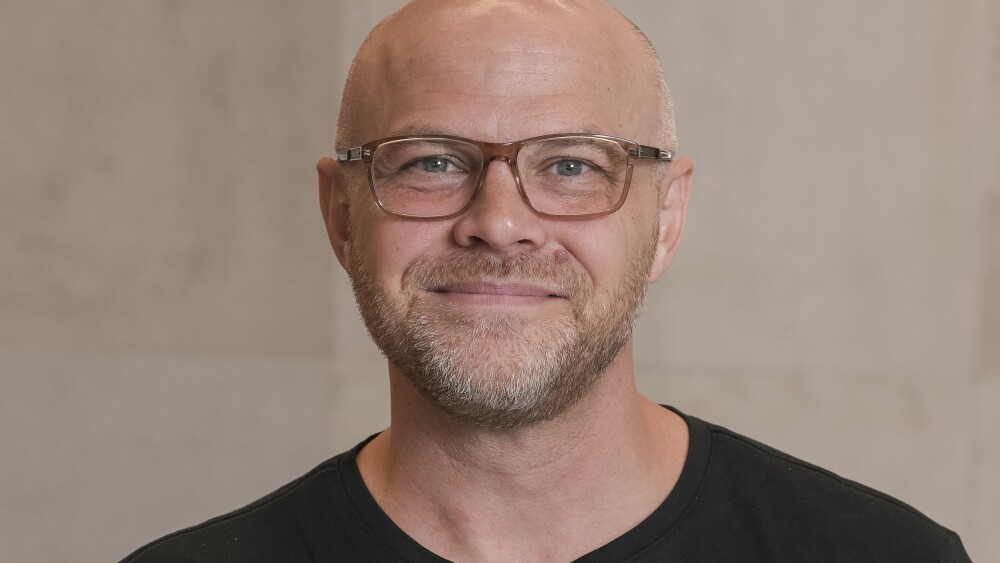Synpromics Limited, a leading synthetic biology company, is pleased to announce that it has formed a collaboration with uniQure N.V., a world leader and pioneer in human gene therapy, to develop synthetic promoters with specific application in the delivery of gene medicines to liver.
Synpromics will use its unique approach to develop synthetic promoters with up-regulated, liver cell specific, activity whilst also decreasing the promoter molecular size to optimize the packaging efficiency of AAV.
The work is also supported by Scottish Enterprise through a grant awarded from its SMART: SCOTLAND scheme, which provides financial support to Small to Medium Enterprises across Scotland.
Dr David Venables, CEO of Synpromics, commented, “Synpromics are very pleased to undertake this collaboration with uniQure, and have a further opportunity to demonstrate the utility of our synthetic promoter technology to gene therapy applications. We have now advanced several projects in different areas and this collaboration highlights that our technology is being increasingly validated.”
ENDS
About Synpromics Limited
• Synpromics is a privately backed synthetic biology company with unique IP and know-how in the development and application of synthetic promoters. Synthetic promoters represent a powerful new technology for improved bioprocessing and product targeting particularly in the areas of cell and gene medicines.
• Synpromics develops synthetic promoters that enable the controlled expression of a protein product at a specific place, in a specific environment, at a specific time, or in response to a specific biological condition.
• Synpromics is based in the Edinburgh Bioquarter.
• For further information visit: www.synpromics.com
About Gene Therapy And Adeno-Associated Virus (AAV)
• Gene therapy is the introduction of genetic material into a patient’s cells to replace missing genes, compensate for abnormal genes or make a beneficial protein. Genes are typically delivered into the cell using a carrier known as a vector.
• Viruses are often used as vectors because they can effectively deliver a new gene by infecting a cell. Adeno-Associated Virus (AAV) is a small virus which infects human cells but does not cause disease.
• The ability of AAV to infect both dividing and non-dividing cells, together with its inability to replicate on its own and that it is unlikely to spread within the body, make it suitable for gene therapy applications.
• AAV-based vectors have been found to affect long-term therapeutic protein expression in humans which can result in long-lasting treatment for patients.
For Further Enquiries
Please contact: Rosheen Caw, Operations Manager, Synpromics
• t: +44 (0) 7961 269674
• e: rosheen.caw@synpromics.com
Help employers find you! Check out all the jobs and post your resume.
Synpromics will use its unique approach to develop synthetic promoters with up-regulated, liver cell specific, activity whilst also decreasing the promoter molecular size to optimize the packaging efficiency of AAV.
The work is also supported by Scottish Enterprise through a grant awarded from its SMART: SCOTLAND scheme, which provides financial support to Small to Medium Enterprises across Scotland.
Dr David Venables, CEO of Synpromics, commented, “Synpromics are very pleased to undertake this collaboration with uniQure, and have a further opportunity to demonstrate the utility of our synthetic promoter technology to gene therapy applications. We have now advanced several projects in different areas and this collaboration highlights that our technology is being increasingly validated.”
ENDS
About Synpromics Limited
• Synpromics is a privately backed synthetic biology company with unique IP and know-how in the development and application of synthetic promoters. Synthetic promoters represent a powerful new technology for improved bioprocessing and product targeting particularly in the areas of cell and gene medicines.
• Synpromics develops synthetic promoters that enable the controlled expression of a protein product at a specific place, in a specific environment, at a specific time, or in response to a specific biological condition.
• Synpromics is based in the Edinburgh Bioquarter.
• For further information visit: www.synpromics.com
About Gene Therapy And Adeno-Associated Virus (AAV)
• Gene therapy is the introduction of genetic material into a patient’s cells to replace missing genes, compensate for abnormal genes or make a beneficial protein. Genes are typically delivered into the cell using a carrier known as a vector.
• Viruses are often used as vectors because they can effectively deliver a new gene by infecting a cell. Adeno-Associated Virus (AAV) is a small virus which infects human cells but does not cause disease.
• The ability of AAV to infect both dividing and non-dividing cells, together with its inability to replicate on its own and that it is unlikely to spread within the body, make it suitable for gene therapy applications.
• AAV-based vectors have been found to affect long-term therapeutic protein expression in humans which can result in long-lasting treatment for patients.
For Further Enquiries
Please contact: Rosheen Caw, Operations Manager, Synpromics
• t: +44 (0) 7961 269674
• e: rosheen.caw@synpromics.com
Help employers find you! Check out all the jobs and post your resume.




